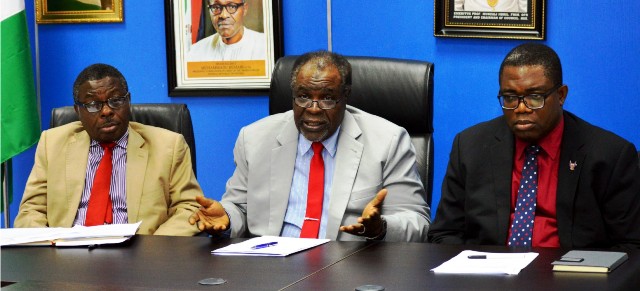Business
IPMAN Lauds NNPC On Petrol Price Crash

The Independent Petroleum Association of Nigeria (IPMAN), yesterday commended the management of Nigeria National Petroleum Corporation (NNPC) for crashing the price of petrol.
IPMAN Chairman in the Western zone, Alhaji Ahmed Debo, made the commendation in Lagos in an interview with newsmen.
He said that the fall in the price of petrol would boost marketers’ revenue and also ensure availability of the product in all nooks and crannies of the country.
It would be recalled that on September 3, NNPC crashed the price of petrol from N145 per litre to between N142 and N143 per litre.
Debo said that some petrol stations in the zone which comprises Lagos, Ibadan, Ore, Ogun and Ondo have adjusted their pump price from N145 to N140 and N139 respectively.
“The crash in price is good for our business; we commended the good intention of the federal government.
“Petrol is currently sold at N133.28 ex- depot price at Ejigbo Satellite and Mosinimi depots respectively.
“The sustained strategic intervention by the government in the efficient supply and distribution of petroleum products, has led to significant reduction in the prices of premium motor spirit (PMS),” he said.
He said that most NNPC mega and affiliate stations within the zone are selling below N145 per litre.
The chairman also hailed NNPC management for ensuring stability and growth in the petroleum industry.
He said: “the entire members of independent marketers commended the leadership of NNPC under DrMaikantiBaru for the stability in the supply of petroleum products.
“IPMAN will continue to work with NNPC in all the 21 depots across the country in ensuring seamless product supply.
“IPMAN controlled over 85 per cent of Nigeria’s petroleum product retailing, which had made the association a dominant player in the Nigerian downstream market.
“We condemn the activities of pipeline vandals and crude oil thieves, which have been a challenge for optimum output from our refineries.
“We are seeking the cooperation of Nigerians to bring to halt the activities of the pipeline vandals and crude oil thieves.’’
Transport
Automated Points Concession : FAAN Workers Gave 72hrs To Revise Decisions In PH

Transport
FAAN Announces Pick-Up Points for Go-Cashless Cards

Business
Fidelity Bank To Empower Women With Sustainable Entrepreneurship Skills, HAP2.0
-

 Politics3 days ago
Politics3 days agoSenate Urges Tinubu To Sack CAC Boss
-

 News3 days ago
News3 days agoAmend Constitution To Accommodate State Police, Tinubu Tells Senators
-

 News3 days ago
News3 days agoDisu Takes Over As New IGP …Declares Total War On Corruption, Impunity
-
Business3 days ago
President Tinubu Extends Raw Shea Nuts Export Ban To 2027
-
Business3 days ago
Crisis Response: EU-project Delivers New Vet. Clinic To Katsina Govt.
-
Business3 days ago
President Tinubu Approves Extension Ban On Raw Shea Nut Export
-
Sports3 days ago
NDG: Rivers Coach Appeal To NDDC In Talent Discovery
-
Rivers3 days ago
Etche Clan Urges Govt On Chieftaincy Recognition

